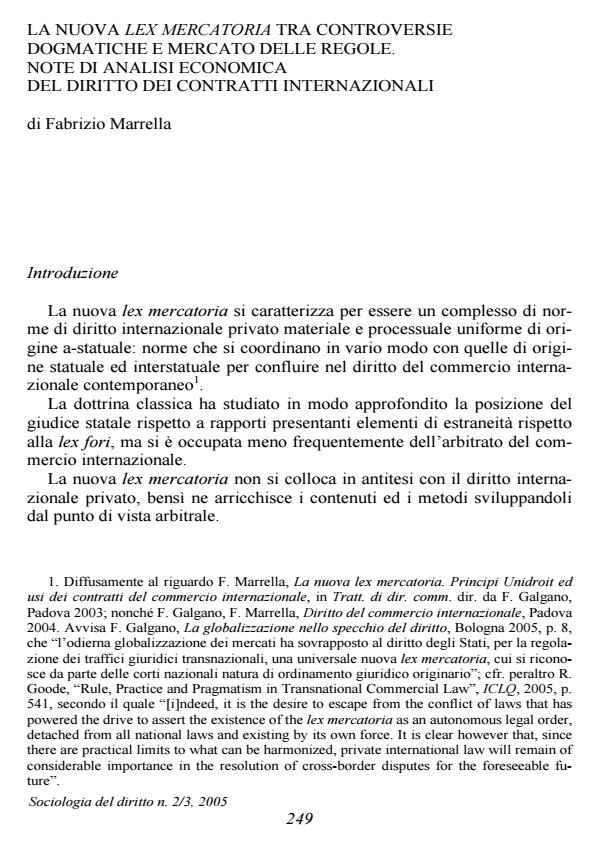La nuova lex mercatoria tra controversie dogmatiche e mercato delle regole. Note di analisi economica del diritto dei contratti internazionali
Titolo Rivista SOCIOLOGIA DEL DIRITTO
Autori/Curatori Fabrizio Marrella
Anno di pubblicazione 2005 Fascicolo 2005/2-3 Lingua Italiano
Numero pagine 37 P. Dimensione file 225 KB
DOI
Il DOI è il codice a barre della proprietà intellettuale: per saperne di più
clicca qui
Qui sotto puoi vedere in anteprima la prima pagina di questo articolo.
Se questo articolo ti interessa, lo puoi acquistare (e scaricare in formato pdf) seguendo le facili indicazioni per acquistare il download credit. Acquista Download Credits per scaricare questo Articolo in formato PDF

FrancoAngeli è membro della Publishers International Linking Association, Inc (PILA)associazione indipendente e non profit per facilitare (attraverso i servizi tecnologici implementati da CrossRef.org) l’accesso degli studiosi ai contenuti digitali nelle pubblicazioni professionali e scientifiche
A great deal of discussion has raged and continues to rage about the new lex mercatoria and its constituent elements, to establish whether it is itself a norm or the source of norms, to determine its position vis-à-vis other norm producing sources, to identify its foundations and its strength, to clarify the mechanism whereby it is created and to determine the methods of its application in contemporary international commercial law. As domestic and international jurisprudence confirms that the lex mercatoria is of legal relevance, the next step is to ask why international commercial actors turn to it to solve their conflicts. Some responses to this question can be furnished by a critical use of the conceptual tool of the economic analysis of law. The result is one of unusual considerations that extend beyond the choice of arbitration and of the place where it is to be practised, also encompassing the determination of legal norms applicable to the merits of the conflicts in question. The participants choose the location of arbitration on the basis of the need for neutrality and to minimise the costs of the transaction, usually expressing a preference for those states with a greater degree of arbitration legal capital. This practice of shopping for law, meanwhile, generates competition not only between the legal orders of states, but also between these as a whole and the new lex mercatoria. This latter is expected to be invoked by international commercial actors only as long as it reduces the asymmetries of information about applicable legal orders and the relative costs of legal actions, thus constituting the cheapest choice.;
Fabrizio Marrella, La nuova lex mercatoria tra controversie dogmatiche e mercato delle regole. Note di analisi economica del diritto dei contratti internazionali in "SOCIOLOGIA DEL DIRITTO " 2-3/2005, pp , DOI: